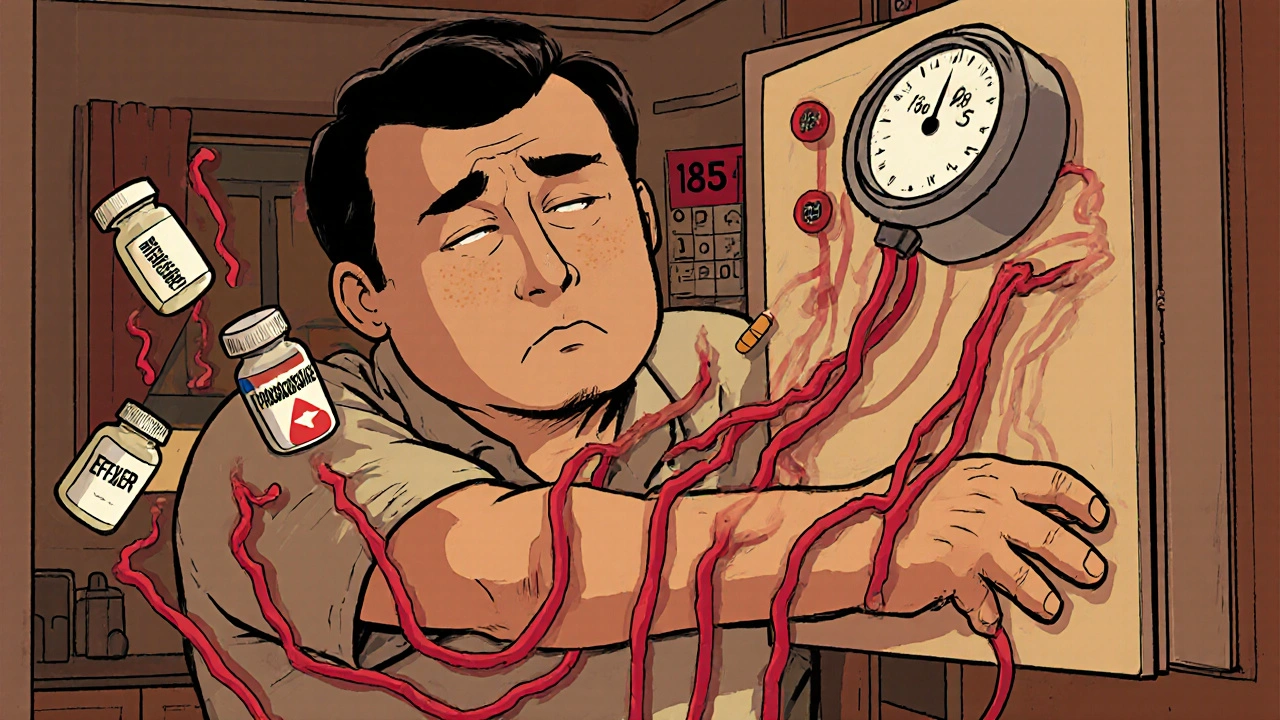Drug-Induced Hypertension: Causes, Common Medications, and What to Do
When your blood pressure spikes not because of genetics or lifestyle—but because of a drug-induced hypertension, a rise in blood pressure triggered by medications or supplements. Also known as secondary hypertension, it happens when something you’re taking interferes with how your body controls blood pressure. This isn’t a rare side effect. It’s one of the most overlooked causes of high blood pressure in adults, especially those on multiple prescriptions.
Many common drugs can cause this. Nonsteroidal anti-inflammatory drugs, like ibuprofen and naproxen, used for pain and inflammation are big culprits. So are decongestants, like pseudoephedrine, found in cold and allergy meds. Even some antidepressants, including SNRIs and MAOIs, can push your numbers up. Hormone-based treatments—like birth control pills or hormone replacement therapy—also show up often in cases. And don’t forget steroids, like prednisone or dexamethasone, which are linked to fluid retention and increased vascular resistance. These aren’t just theoretical risks. Real patients see their systolic pressure jump 10–20 points after starting these drugs.
What makes it tricky is that symptoms don’t always show up. You might feel fine, but your blood pressure is creeping higher. That’s why checking your numbers regularly matters—especially if you’ve recently started a new medication. If you’re on a long-term drug and your BP suddenly climbs, don’t assume it’s aging or stress. Ask your doctor: could this be drug-induced? Sometimes switching to a different medication or adjusting the dose brings things back down. In other cases, adding a low-dose antihypertensive drug, like a calcium channel blocker or ACE inhibitor helps manage the side effect without stopping the original treatment.
The posts below dive into real-world examples of how medications affect blood pressure. You’ll find comparisons of drugs like Carvedilol and dexamethasone, which can both influence hypertension in different ways. You’ll also see how people manage side effects from painkillers, antidepressants, and even herbal supplements. These aren’t abstract theories—they’re stories from patients and clinicians who’ve seen the impact firsthand. Whether you’re worried about a new prescription or trying to understand why your numbers won’t budge, the answers here are practical, direct, and based on real cases.

High Blood Pressure Caused by Certain Medications: How to Monitor and Manage It
Certain medications like NSAIDs, corticosteroids, and decongestants can raise blood pressure silently. Learn how to spot the signs, monitor effectively, and manage it safely without stopping essential treatments.